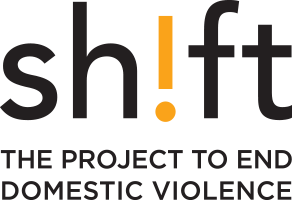INFORMAL SUPPORTS
Rationale
Informal supports can include family members, relatives, close friends, casual acquaintances, neighbours, co-workers, doctors, and members of a faith community that provide instrumental and emotional assistance to victims and/or perpetrators of domestic violence, as opposed to formal support, that is provided through agencies or larger systems.
Buying into the belief that domestic violence is a private matter between two people, rather than something for which we are all responsible, means that we ignore one of the most important ways to prevent violence and offer meaningful support. While formal services and supports are critical, research shows that informal networks – including friends and family – can play a pivotal role in preventing domestic violence.
The benefits victims receive as a result of positive, appropriate responses from members of their informal networks are many, ranging from improved mental and physical health, fewer suicide attempts and a heightened willingness to contact formal support.


Our Response

In 2012, in partnership with the Calgary Domestic Violence Collective (CDVC), HomeFront engaged Shift to conduct research regarding best and promising practices of an effective societal response to domestic violence. One key finding was the importance of informal supports in prevention. As a result, we released an issue brief titled: “Supporting the Supporters: How friends and families can help to prevent domestic violence”, and collaborated with CDVC to create a new initiative focused on Supporting the Supporters to prevent domestic violence. The aim of the initiative:
- Explore the value of informal supports in the lives of those dealing with domestic violence.
- Understand how best to support informal supports to effectively respond to the needs of the victim.
- Explore both in research and from the service provider perspective the perceived reluctance of friends and families to intervene in what is commonly understood as a private matter.
- Understand what services (if any) are already being offered to informal supports in Calgary.
- Explore how organizations that specialize in domestic violence in Calgary can start to build customized programs that are geared towards informal supports, including the general public, to prevent domestic violence.
In 2013, Shift’s interest in this area continued and we partnered again with CDVC. We received a Developmental Evaluation Grant from Innoweave – McConnell to support the development of a Calgary and area informal supports strategy.
In 2015, a working group representing four organizations (Calgary Women’s Emergency Shelter, HomeFront, Sagesse (formally Peer Support Services) and Discovery House) was established, online surveys and interviews were conducted, and we released a report titled: “Supporting the Supporters to Prevent Domestic Violence Initiative: Exploring the Role of Informal Supports in Preventing Domestic Violence in Calgary and Area”. The report pointed to a need for CDVC, along with all relevant domestic violence stakeholders, to serve and support informal supports as they are an integral part of preventing and stopping domestic violence.
In 2016, CDVC renewed its commitment to focus on enhancing informal supports.
In 2017, CDVC finalized a comprehensive framework for Calgary, and is currently working on the implementation. For more information, please go to http://cdvc.ca


